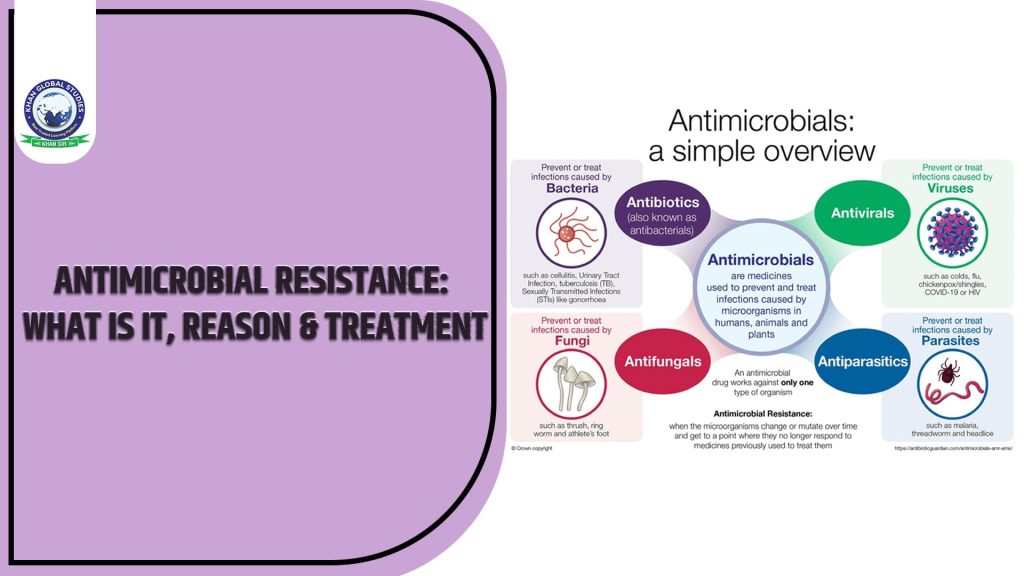
The Delhi Declaration, during India’s G20 Presidency, saw a commitment to strengthen the global health architecture by building more resilient, equitable, sustainable and inclusive health systems.
Description
- Efforts are being made to implement the One Health approach, enhance pandemic preparedness, and strengthen existing infectious disease surveillance systems.
- A commitment to prioritize tackling Antimicrobial Resistance (AMR) through Research and Development (R&D), infection prevention and control, as well as antimicrobial stewardship efforts within relevant National Action Plans (NAPs). Was expressed.
- It was also promised to facilitate equitable access to safe, effective and affordable vaccines, therapeutics, diagnostics and other medical interventions, particularly in low- and middle-income countries, least-developed countries and small-island developing states.
A Health Approach
- It is an integrated approach that focuses on optimizing the health of people, animals, and the environment.
- This is critical to preventing and responding to global health threats, particularly in areas such as food and water security, nutrition, control of zoonotic diseases, pollution management and combating antimicrobial resistance.
- In May 2021, the One Health High-level Expert Panel (OHHLEP) was established to advise key organizations such as FAO, UNEP, WHO and WOAH on One Health matters.
What are Antimicrobials?
Antimicrobials (including antibiotics, antivirals, antifungals, and antiparasitics) are drugs used to prevent and treat infections in humans, animals, and plants.
What is Antimicrobial Resistance?
- Antimicrobial Resistance (AMR) occurs when bacteria, viruses, fungi, and parasites change over time and no longer respond to medications, making infections harder to treat and increasing the risk of disease spread, severe illness, and death.
- As a result of drug resistance, antibiotics and other antimicrobial drugs become ineffective and infections become difficult or impossible to treat.
Antimicrobial Resistance (AMR) is a serious global concern due to the emergence of drug-resistant pathogens, making common infections difficult to treat.
- “Superbugs” or multi- and pan-resistant bacteria are spreading rapidly, rendering existing antibiotics ineffective.
- The lack of new, innovative antimicrobials in the clinical pipeline exacerbates this problem.
- The impact of AMR is significant, affecting patient outcomes, health care costs, and even essential medical procedures such as surgeries and transplants.
Reason for increase in AMR
Excessive use and misuse of Antimicrobial Drugs, inadequate access to clean water and sanitation, poor infection control, limited access to quality medicines, lack of awareness and inadequate implementation of regulations.
AMR affects various infectious agents:
- This includes bacteria, tuberculosis and viruses, making treatment increasingly complex and expensive.
- It also affects fungal infections, leading to treatment failure, longer hospital stays and increased healthcare costs.
- According to a new Lancet report (which analyzed data from 204 countries), an estimated 4.95 million deaths in 2019 were linked to the bacteria AMR, of which 1.27 million were directly attributable to it. This worrying number is equal to deaths caused by diseases like HIV and malaria.
- Sub-Saharan Africa and South Asia have emerged as the regions with the highest mortality rates associated with AMR, highlighting their increased vulnerability to this global health threat.
Global Initiative
- Global Action Plan on Antimicrobial Resistance (GAP): Countries commit to the GAP to develop and implement national action plans to combat AMR.
- Trilateral Joint Secretariat on Antimicrobial Resistance: The Trilateral Joint Secretariat (FAO, OIE and WHO) was established to promote multi-stakeholder participation in AMR.
- World Antimicrobial Awareness Week (WAAW): World Antimicrobial Awareness Week is a global campaign that aims to raise awareness of AMR and encourage best practices.
- Global Antimicrobial Resistance and Use Surveillance System (GLASS): GLASS is a system to collect, analyze, and share data on AMR.
- Global research and development priority setting for AMR: WHO has developed a priority list of pathogens to guide research and development into new antimicrobials, diagnostics and vaccines.
- Global Antibiotic Research and Development Partnership (GARDP): GARDP is a partnership developing treatments for drug-resistant infections.
India’s initiative
- India’s National Action Plan (NAP) aims to improve awareness, increase surveillance, strengthen infection prevention, promote research, and promote collaboration to control AMR.
- The Food Safety and Standards Authority of India (FSSAI) issued “Antibiotic Residue Limits” for food of animal origin.
- “Action Plan for AMR Prevention” was jointly prepared by the Ministry of Health and Family Welfare, National Center for Disease Control (NCDC) and WHO Office in India, State Health Ministries and other relevant stakeholders in 2017 to begin the implementation phase. A meeting named “National Consultation” was organized for the conduct of.
- The Indian Council of Medical Research (ICMR) has launched an “Antimicrobial Resistance Surveillance Network” to provide surveillance data at the national level, including clinically sequenced strains from over twenty state medical college laboratories with a dedicated national coordination centre. Samples included. Samples included. Samples included. Samples included. Contains data on pathogens. is collected.
- Kerala became the first state to adopt a sub-national state action plan.



